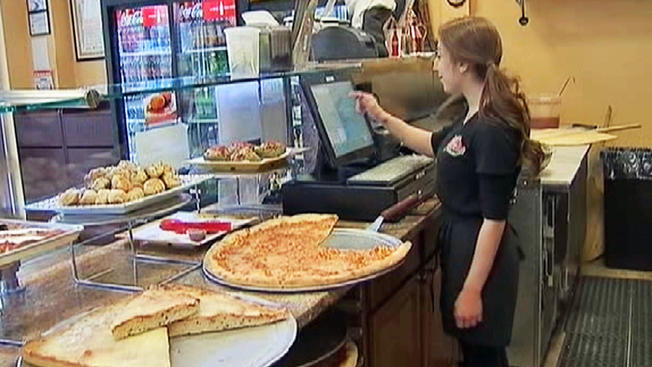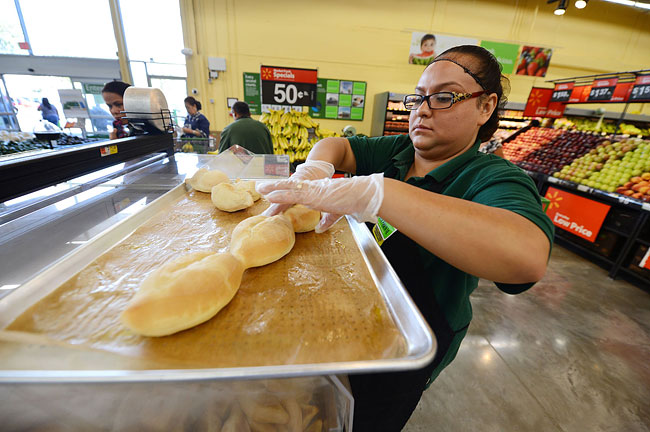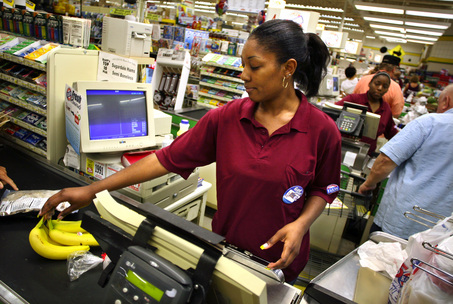
What if everyone working in the city made at least the full-time equivalent of $31,200/year?
Just about everyone running for office, including for Mayor of Baltimore, is endorsing increasing the minimum wage from $8.25/hour to $15/hour. Now who wouldn’t be in favor of that?
“Good question.”
Thank you. Let’s think about it, but first, it’ll be helpful if we stop talking about the minimum wage in terms of dollars per hour. $15 is a relatively small amount of money. Instead, let’s discuss the minimum wage in terms of its equivalent annual income. It’s a much bigger number that may cause you to reconsider any opinion you have already formed.
Assuming 40 hours per week for 52 weeks per year, there are 2080 work hours in the year. If the minimum wage goes up to $15/hour, it means we’re setting the “minimum annual income,” a term we’ve just created for purposes of discussion, at $31,200, up from $17,160 which is based on the current minimum wage of $8.25/hour. That’s an increase of 82% – which is great if you’re currently making the minimum wage and don’t lose your job. More on that possibility in a moment.
Round numbers, the federal government defines poverty for a family of 4, including two dependents under 18 years old, as making $24,036 or less per year. So, in effect, raising the minimum wage to $15/hour eliminates poverty in Baltimore – or does it? If only it were that easy.
Here now, in no particular order, is a list of issues that you need to consider when you think twice about raising the minimum wage to $15/hour.
1. Competitive wages.
Raising the minimum wage imposes an artificial floor to how much people can get paid. By “artificial,” we mean “other than what naturally occurring market forces would dictate.” The only justification for doing that, from overriding what the market for labor would otherwise dictate, is that there’s something wrong with that market. Non-competitive forces would have to be conspiring to hold down the wages people at the bottom of the market are making. Raising the minimum wage is one way to correct or compensate low-end workers for that market failure.
The problem is, there is no real evidence that the market isn’t working. Just because people aren’t earning enough money doesn’t mean that they aren’t being paid a competitive wage.
You’ve raised people’s income by a whopping 82% without there being any increase in their productivity or other change in supply or demand. In what alternate universe does that make any sense?
2. The effect on how much people make.
Let’s say that you’re a person who, now a few years or more out of high school, has finally worked her way up to making $31,200/year. Justifiably, she’s proud of what she’s accomplished. She’s worked hard, learned new skills and improved the efficiency of her team to the benefit of her employer and its customers. And now that employer hires someone fresh out of high school with zero experience – and, because the minimum wage is now $15 per hour, pays him the same salary she’s making. If you were her, how would you feel? Wouldn’t you ask for a raise to match the difference between what you contribute to your company compared to the newbee? Of course you would. And so it would go, rippling increases throughout the company and the economy.

3. The effect on employment.
Everybody will want more money. Employers are understanding, but that doesn’t mean that they can pass the additional costs along to their customers. And what if they can’t? What if the local pizza joint can’t raise the price of a slice enough to pay its employees their higher wages? Well then, that employer is just going to have layoff some of them. Which ones? The ones that no longer think raising the minimum wage was such a good idea.
Keep in mind that we’ve already lost ton of low-skilled, labor-intensive manufacturing jobs to foreign countries. We need to be concerned that increasing the minimum wage by 82% will encourage further out-sourcing. That’s an increase of $14,740/minimum wage employee – not including increases other employees will demand. If your plant has 100 minimum wage employees, your costs for labor will increase by $1,474,000 per year, not including employer taxes. It’s $1,474,000+ that employer is going to have to pass along to its customers.
And, by the way, a higher “minimum wage” only becomes a “living wage” if you have a job. If you don’t have a job, the increase is meaningless. If you had a job, but just lost it because your employer had to cut back, then raising the minimum wage has been a disaster for you and your family.

4. The effect on higher education and vocational training.
According to the National Association of Colleges and Employers, students majoring in the liberal arts or humanities who graduated in 2014 made an average of $36,237 during their first year out of college. Those are the ones who could find work, of course. Presumably, college graduates will have higher upward mobility, financially speaking. Even though their starting income is relatively, presumably they’ll do better over the long-run than their cohorts who didn’t attend college. If they don’t do better than their cohorts, then college – except for the experience of it all and the non-pecuniary value of knowledge – was a huge waste of time and money.
The point is that there are some high school graduates for whom college is a somewhat iffy decision and/or for whom the costs are very difficult to cover. For some of those high school graduates, the prospect of making $31,200 to start, without having to go to college, may be enough to discourage them from the pursuit of higher education. Some will think they’ll go later, but that may not be the case.
Vocational training may be affected to an even greater extent given that there’s absolutely no certainty that people completing a vocational education program will find a job when they graduate. (That’s why on-the-job training is preferable for relatively low- to moderately-skilled jobs.)
no certainty that people completing a vocational education program will find a job when they graduate. (That’s why on-the-job training is preferable for relatively low- to moderately-skilled jobs.)
“What the heck,” some high school graduates will rationalize, “I might as well make $31,200/year flipping burgers – and bank the money I would have been spending on college tuition. At least I won’t be graduating 4 years from now with a load of student debt.”
5. The effect on workforce participation.
Having lived through the great recession that drove up unemployment rates during the first years of the Obama administration, we all understand that there are people who, when times are tough, give up and stop looking for work. It’s only a guess of course, but odds are that some of those people are going to rejoin the hunt for employment when the minimum they can earn is now $31,200/year. Needless to say, the more people pursuing a given number of jobs, the harder it’s going to be for the city’s unemployed who have already been looking for employment to find it.
6. One last point.
It makes perfectly good sense that well-meaning, compassionate candidates and voters would be in favor of increasing the minimum wage to $15/hour. But have they really thought it through? It doesn’t create jobs and may actually cause the loss of a good number of them.
“What about jobs that result from people spending all the extra money they’re making?”
Oh, yeah. The problem is that all that additional spending is after taxes, only some of it goes to the products and services manufactured by local employers and a lot of it is consumed by the higher prices employers need to charge for their goods and services because their cost for labor has gone up.
 An increase in the minimum wage is inflationary. When you increase the cost of labor – without increasing productivity, the prices of goods and services will rise as companies pass their higher costs of labor on to their customers, many of which are the ones whose minimum wages were just increased. In fact, one of the reasons we’re considering increasing the minimum wage is to keep pace with inflation that’s already occurred. It’s a vicious cycle, the only real solution to which is to increase worker productivity and create more jobs for the unemployed and under-employed, an effort that isn’t going to be made any easier by increasing minimum wages by 82%.
An increase in the minimum wage is inflationary. When you increase the cost of labor – without increasing productivity, the prices of goods and services will rise as companies pass their higher costs of labor on to their customers, many of which are the ones whose minimum wages were just increased. In fact, one of the reasons we’re considering increasing the minimum wage is to keep pace with inflation that’s already occurred. It’s a vicious cycle, the only real solution to which is to increase worker productivity and create more jobs for the unemployed and under-employed, an effort that isn’t going to be made any easier by increasing minimum wages by 82%.
And who exactly, in Baltimore, is going feel the negative effects of a higher minimum wage? The professionals who work downtown and around the harbor or the families in the neighborhoods who are already struggling? Baltimore lost a third of its population over the last 60 years largely because of the collapse of the city’s manufacturing sector, a great deal of which got up and left the country. Setting minimum annual incomes at $31,200 per year isn’t going to help the next Mayor breathe new life into that sector of the Baltimore economy.
Maybe some types of employment, particularly at smaller companies, need to be exempted or not required to pay everyone they hire $31,200/year regardless of what they do. It’s certainly worth considering.
So why are candidates supporting a higher minimum wage? Because it’s the politically correct thing to do. They’re telling employed voters with minimum wage jobs what they want to hear when what they should be telling all of us is exactly how they’re going to bring more, higher paying jobs to the heart of the city’s disadvantaged neighborhoods – preferably jobs that provide on-the-job training even if that training is at the city’s expense.

